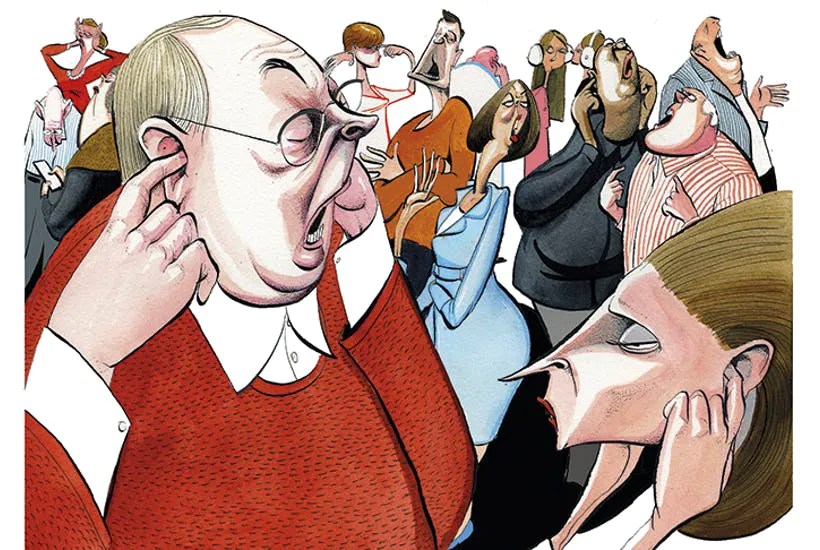‘I’m not sure I even know what woke means,’ tweeted barrister Chris Daw at the weekend, ‘but if it’s just treating all people fairly, and with kindness and dignity, it doesn’t seem so bad.’ This is the perfect example of the faux-naïf, head shaking sadly, cosy boast – well, when you get right down to it, isn’t my political ideology just being nice?
No, Chris. Let me clear this up for you right now. No. You are thinking of the mixture of residual Christianity and social liberalism that, for better or worse depending on taste (and I was quite fond of it generally) dominated Western discourse for much of the previous century. Woke is very much not that.
‘Treating all people fairly and with kindness and dignity’ is about as far as you can get from what’s happened to Kate Clanchy or to Gillian Phillip or to Maya Forstater, to name but three.
Wokeism, in the context of those three, is a vindictive, unfair, bad faith ideology which is the exact opposite of custard cream tweeness. It is chippy, entitled, cruel and snarky, and regularly combines those two loveable qualities, arrogance and self-pity.
Taking the entirely unremarkable position that people deserve equal treatment is neither ‘woke’ nor ‘liberal’
It’s for people who (rightly) laugh at conspiracies such as QAnon and the WEF globalist agenda but who in their very next breath have difficulty stating that there are two sexes. It has stolen the valour of the great human-rights movements of the last century, pretending to be the next step up on the great progressive ladder while actually having more in common with the tactics and the demeanour of friendly entities like the Stasi or the Chinese Communist Party.
The very irritating new British Social Attitudes survey from NatCen gets itself into a similarly terrible muddle on this, particularly in its chapter on ‘Culture Wars’.
There are some gobsmacking assumptions and leaps of logic in this section, both in the leading questions asked of respondents and in the write-up to the answers given. This includes a valiant attempt to tag attitudes on to Brexit, just to keep that particular much-loved pot boiling. The chapter regularly contrasts – without making much of an effort to justify this assertion, or even being aware that it might be required to – woke as ‘inclusive’ and ‘liberal’, and ‘anti-woke’ as authoritarian.
‘Indeed,’ the report states, ‘the fact that “culture war” issues have been as prominent as they have been in recent years may well be a consequence of the fact that the balance of liberals and authoritarians has gradually been changing over time.’ I’d suggest that this balance is much the same. It’s the labels that have switched around, and authoritarian people are naturally attracted to woke, which has a lot more in common with the old-fashioned ‘hang ‘em and flog ‘em’ brigade than its opposition.
This mischaracterisation of both sides is only added to by a strange selection of dead and buried issues in the questioning (perhaps inevitable, given that the survey maps changing attitudes by asking the same old questions again and again, like asking people in 2022 if they prefer Stork to butter). Prominent among these are whether country of birth makes a person British or not and, very bizarrely, whether civil rights for ethnic people have ‘gone too far’.
This is not where the live debates are. The Race Relations Act passed in 1965! Has anybody seriously argued in this country that people of different ethnic origins deserve different rights since the abolition of slavery in 1833? Even back then it was an unpopular position. Taking the entirely unremarkable position that people deserve equal treatment is neither ‘woke’ nor ‘liberal’.
This is an extreme example of the public sphere still using twentieth century words for nineteenth century concepts in a world altered beyond recognition. Referring to political divisions in terms of liberal vs authoritarian (and quite possibly left and right) is about as much use as describing metaverse programming in the vernacular of the Battle of Trafalgar.
In the post-war twentieth century, policies and ideas could be described as progressive or liberal based on their content. This is no longer the case. Self-described progressives now qualify whatever they fancy, no matter how bizarre, as progressive. It’s a neat but dirty trick, like setting up an organisation called The Campaign For Niceness and advocating kicking cats over hedges or dosing babies with meth, then reacting to any objections with ‘oh dearie me, how can you possibly be against niceness?’
Both Chris Daw and NatCen are right, however, to question the efficacy of the word ‘woke’. When it first popped up around the middle of the last decade it was a snappy shorthand way to define this rotten, peevish ideology. But it quickly lost its value.
But we do need something zingy to refer to this authoritarian ideology and its adherents. ‘The left’ is laughably inaccurate as a descriptor of something so bound to the corporate and managerial class. ‘Critical social justice’ is a nice try but unwieldy and unclear; ‘divisive posturing and malignant crankish snobbery’ perhaps too much of a mouthful. I’m out of ideas, so please write in if you’ve got something.
We need to rid ourselves of dated lexical clutter in order to think clearly, and see our modern politics for what it actually is, free from the terminological ghosts of former times.







Comments